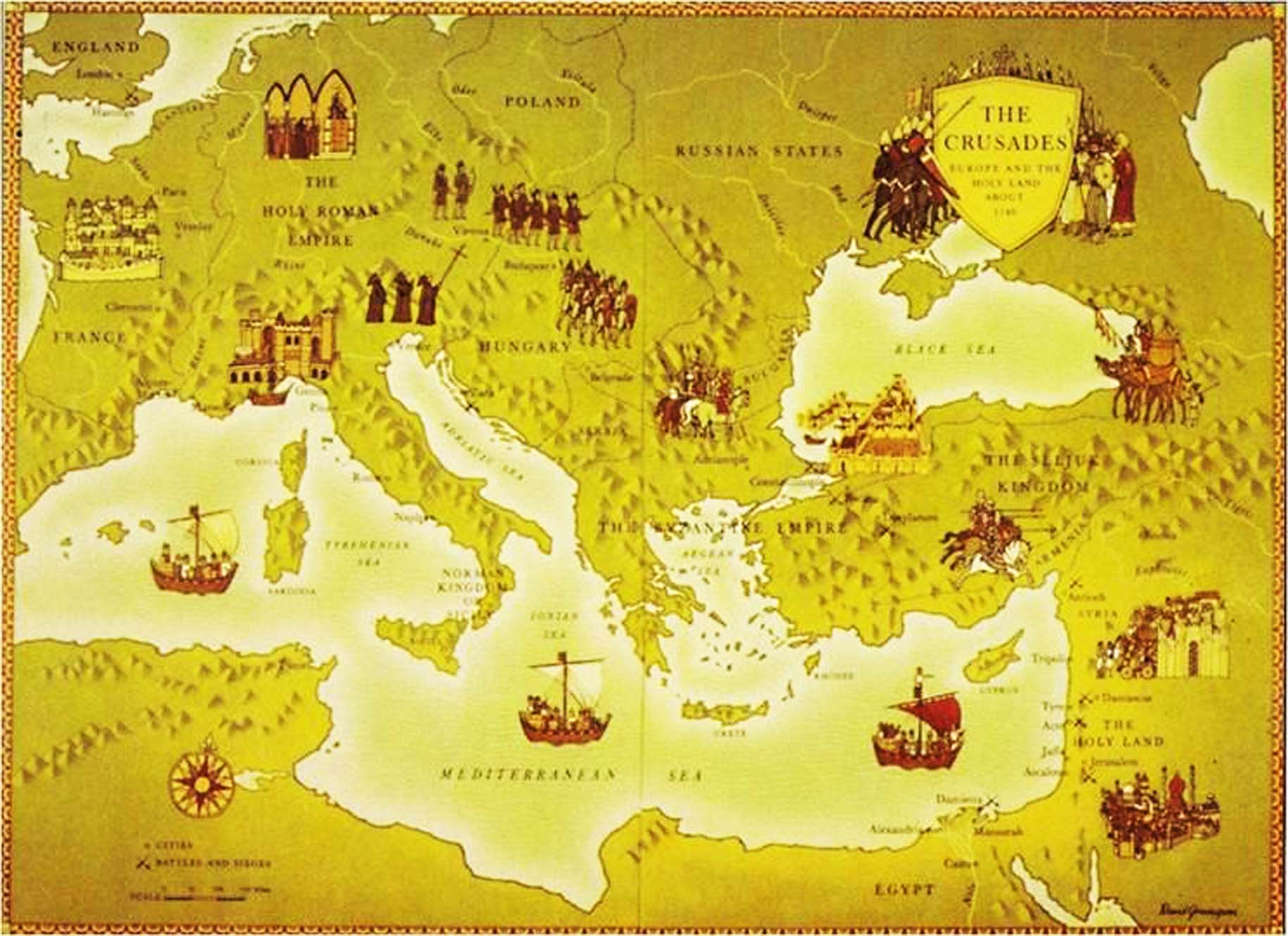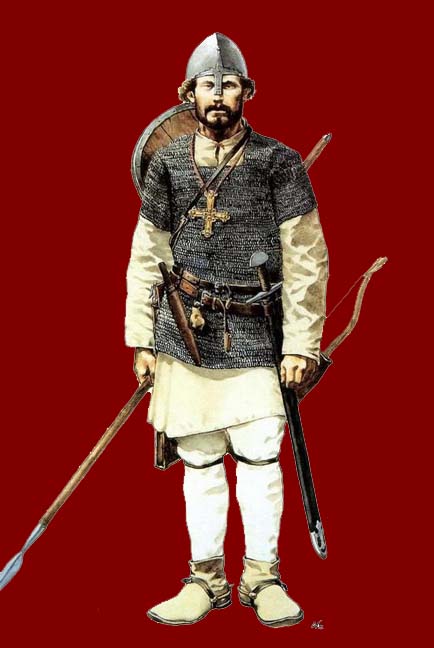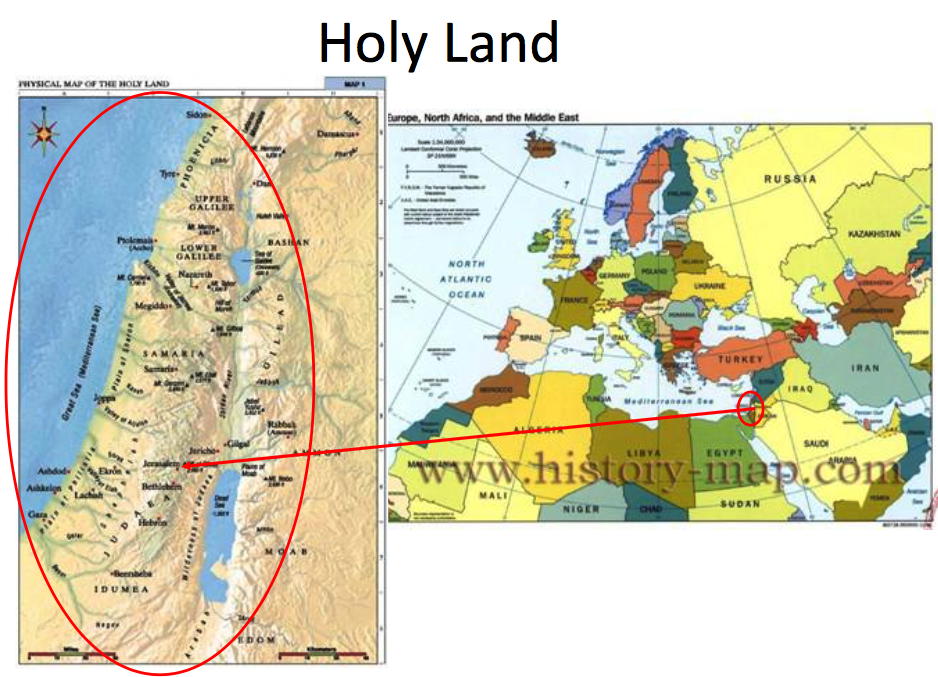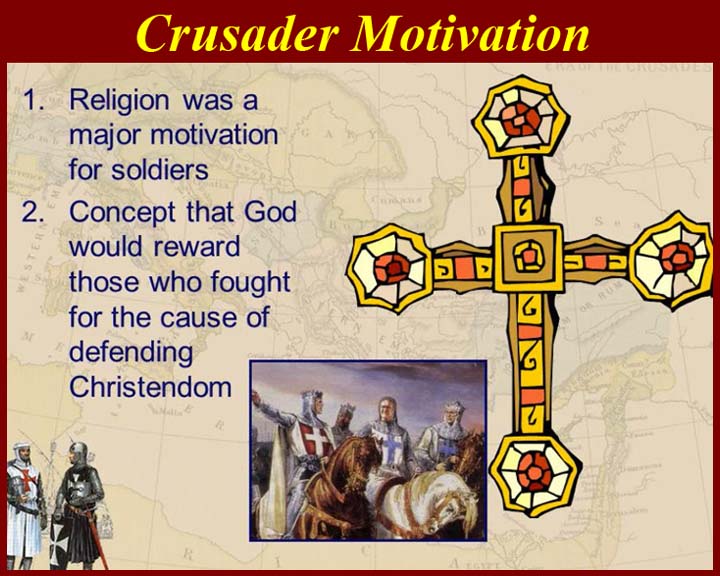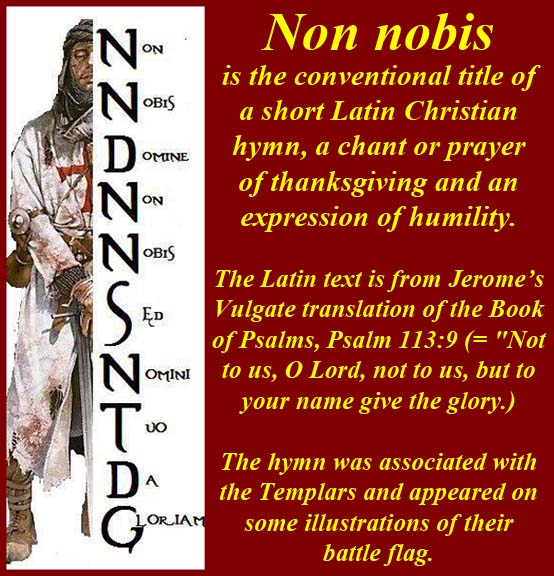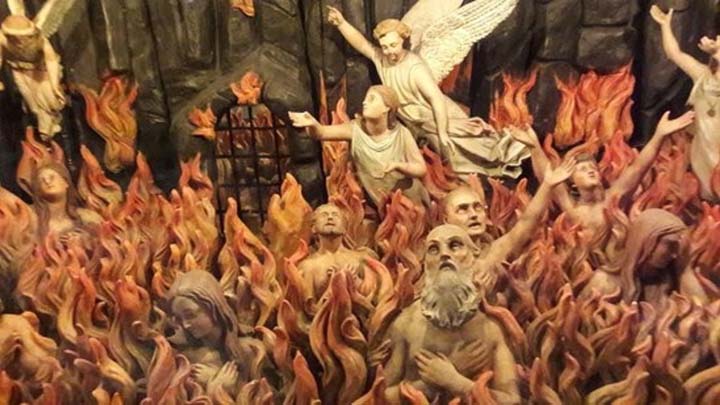Unit 10 Conclusions? Topics for discussion?
Whose ox was gored? Which was the aggrieved party?
The 21st century politically correct answer is often that the peacefully living Middle East Muslims were the victims of invading, greedy, marauding Western Christian barbarian hordes -- steal the Holy Land and make your fortune!
But wait. Wasn't that preceded by about 485 years of Islamic expansion into Christian Middle Eastern and southwestern Asian and North African and southwestern European (mostly Spanish) territory?
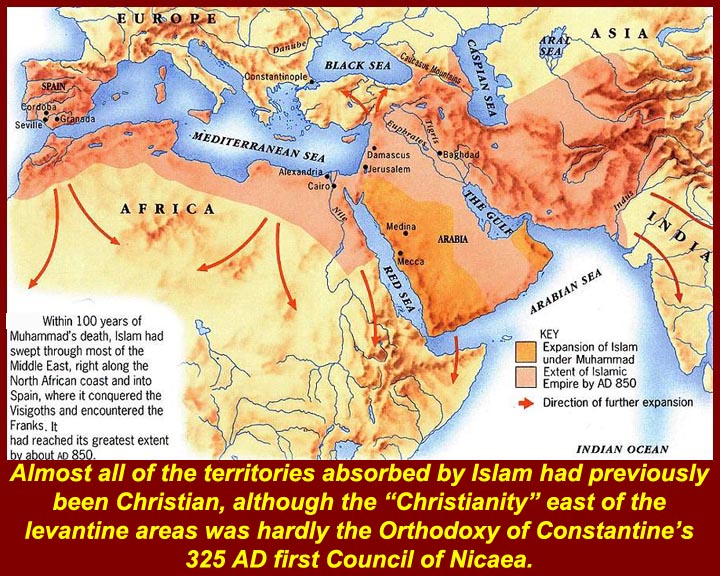
http://www.mmdtkw.org/CRUS0145-ArabMap.jpg
But that leaves aside the tenuous claims of the mostly Byzantine Christians who inherited all that turf based on the 380 AD Edict of Thessalonica, when Roman Emperor Theodosios I made Christianity the Roman Empire's only authorized religion.
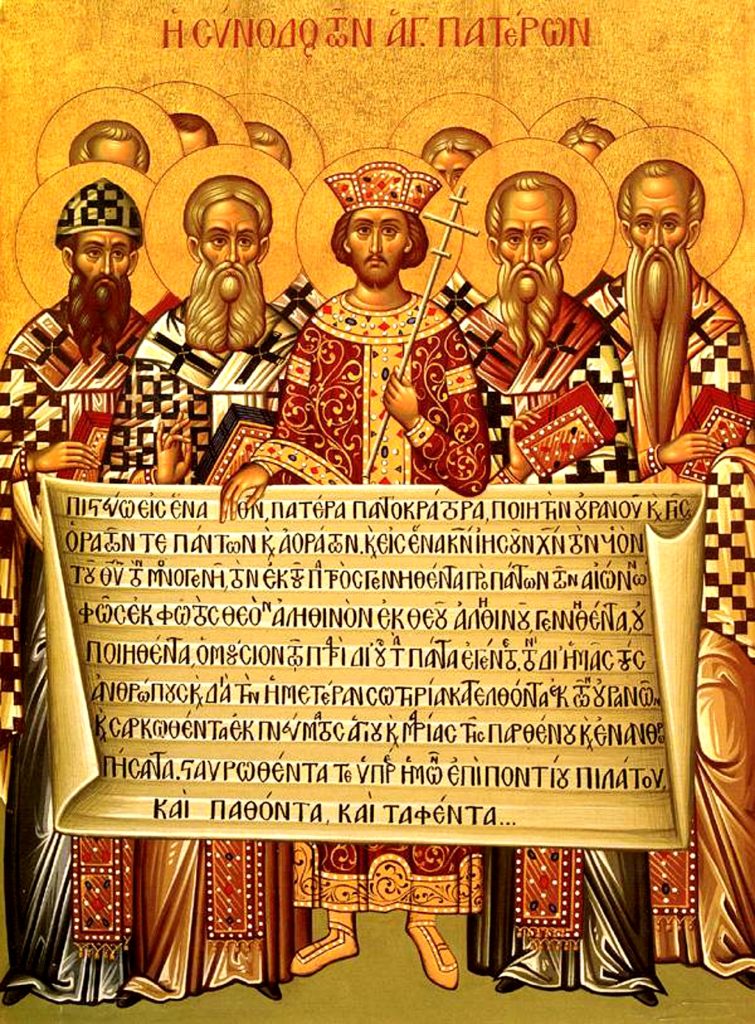
http://www.mmdtkw.org/CRUS1001-EdictThessalonica.jpg
It also ignores the fact that many of the folks conquered during the Islamic expansion looked on the Islamic arrival as liberation from the Byzantines.
There's more: Nobody can seriously aver that the Middle east Muslims were living peacefully together before the arrival of the crusaders. Muslim infighting and disunity is all that allowed the crusader victory in the First Crusade and all that allowed any Frankish presence in the Middle East for the subsequent two centuries.

http://www.mmdtkw.org/CRUS1002-Sushi.jpg
Nor, for that matter, you would have to be pretty gullible to believe that the Europeans were living peacefully together; It took the twin threats of excommunication and interdiction to lessen the interminable European wars enough to stop the fighting and to allow crusader cooperation.)
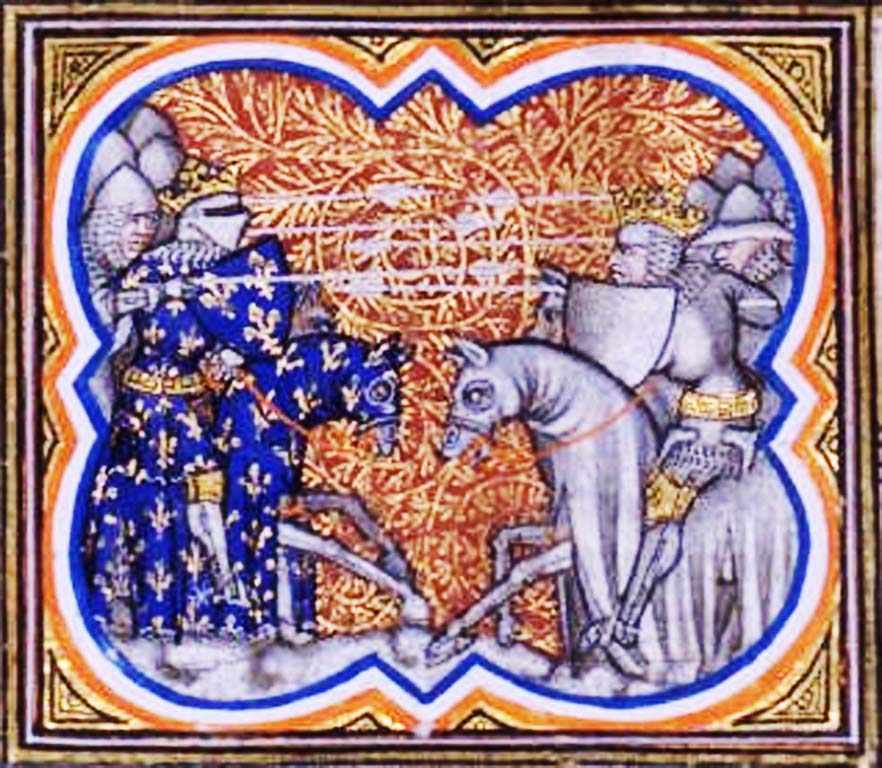
http://www.mmdtkw.org/CRUS1003-BattleBremule.jpg
c.f., https://en.wikipedia.org/wiki/Battle_of_Brémule -- France vs. England, 1191 in Normandy
Still more: The idea that greed motivated the Crusaders is patently false. Crusader kings and lords went into hock up to their eyeballs and put their families and territories deeply in debt from which few ever recovered.

http://www.mmdtkw.org/CRUS1004-PawnDebt.jpg
All that was in order to fund the transport and supply of their entourages, which, in some cases, might involve thousands of mounted knights (each one of which would expect to be accompanied at least one mounted sergeant-at-arms plus spare mounts). Also part of the principal's entourage would be an appropriate number of infantrymen.
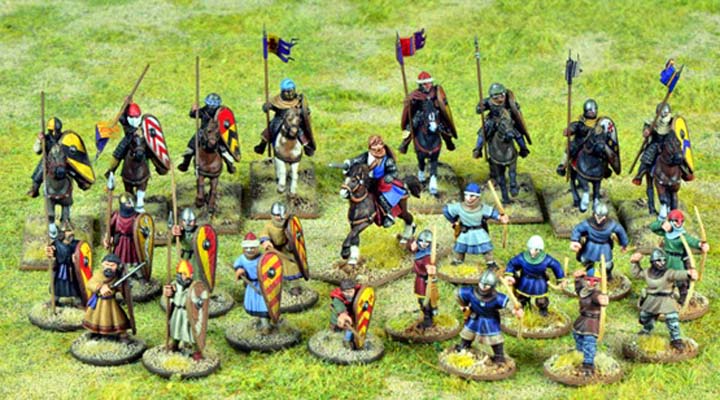
http://www.mmdtkw.org/CRUS1005-rusadersMixed.jpg
Individual knights and infantrymen would have to equip themselves, and that would put them also (and their families) deeply into debt.
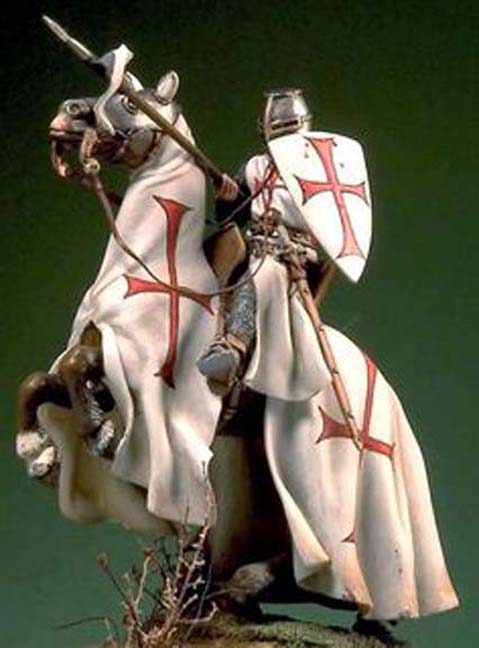
http://www.mmdtkw.org/CRUS1006-MountedKnight.jpg
http://www.mmdtkw.org/CRUS1007CrusaderFoot.jpg
The odds were (and this was known at the outset) that, whether king, lord, knight, sergeant, or commoner, you would never come home to relieve your family's debt. If you were captured and a high-ranker, your family or vassals or church parish might have to raise more money for a ransom. Those crusader captives not important enough to be ransomed were enslaved of simply killed.
If you went on a Middle East crusade, even if you weren't captured, your fate would be to stay in the area (i.e., abandon your connections to your original homeland -- and never redeem the family debt) or return to face your creditors.
In some crusades, kings were forced to abandon their quests and return home to defend against usurpers -- the prime example being Richard Lion-heart who made a quick face-saving deal with Saladin (1192) and headed home to fend off his brother John's attempted takeover in England and encroachment on his french territories by French King Phillip Augustus. (As it turned out, Richard was captured by Austrian and German enemies during his journey home, and didn't get home until 1194. Richard spent the next five years trying to solidify his holdings in France and was struck down by a crossbow bolt in 1199. Brother John, who had attempted to usurp Richard's thrown while he was away, succeeded Richard and lost all that French territory.)
Brother John, by the way, aside from losing all the French territory, turned out to be a much better King of England than had been his Lion Hearted brother Richard. John resisted all calls to go off adventuring in the Middle East and stayed home (actually stayed in England) and ran the country. He rationalized the economy and paid off the massive debt that Richard had left behind, including the ransom paid for Richard that was equivalent to about two billion dollars in our money -- a real kings ransom. This meant raising taxes, with a lot of attendant wailing, but late 20th and 21st century historians are starting to realize that everything was probably better under John than had been the case under Richard.
Religious fervor had been a prime motivator for the massive participation in the Crusades, although it is quite clear that the people doing the motivating may have had mixed motives. Were they really doing God's work?
Where were the Crusades?
Many people think first of the "Holy Land".Collateral damage? Rhineland Massacres
But we have seen that that's too simple.http://www.mmdtkw.org/CRUS1010-HolyLand.jpg
We have seen that, in addition to what "we" (Christians, Jews, Muslims, and those others who've imbibed in their myths) now call the "Holy Land", Crusades might also happen anywhere from Spain and France (against both Muslims and heretics), to the Baltic lands and seas (against heretics and "pagans"), to North Africa (as a route to Egypt), to Egypt and other parts of the wider Middle East (where Islamic, Turkic, or Mongol power might reside), to the Balkans (where Constantinople was trashed and looted and the Byzantine Empire was dismembered), to anywhere else that had the misfortune to be on any route taken by Crusaders.
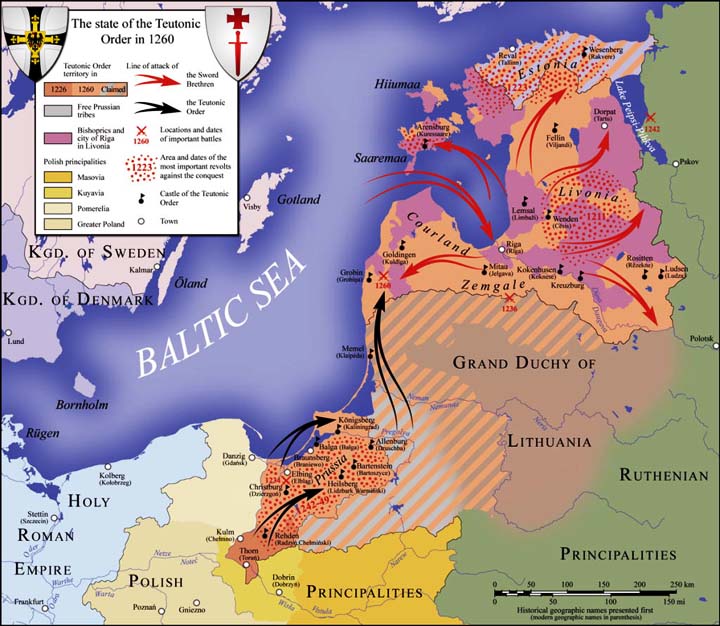
http://www.mmdtkw.org/CRUS1008BalticCrusade.jpg In the Baltic area vs. "pagans"
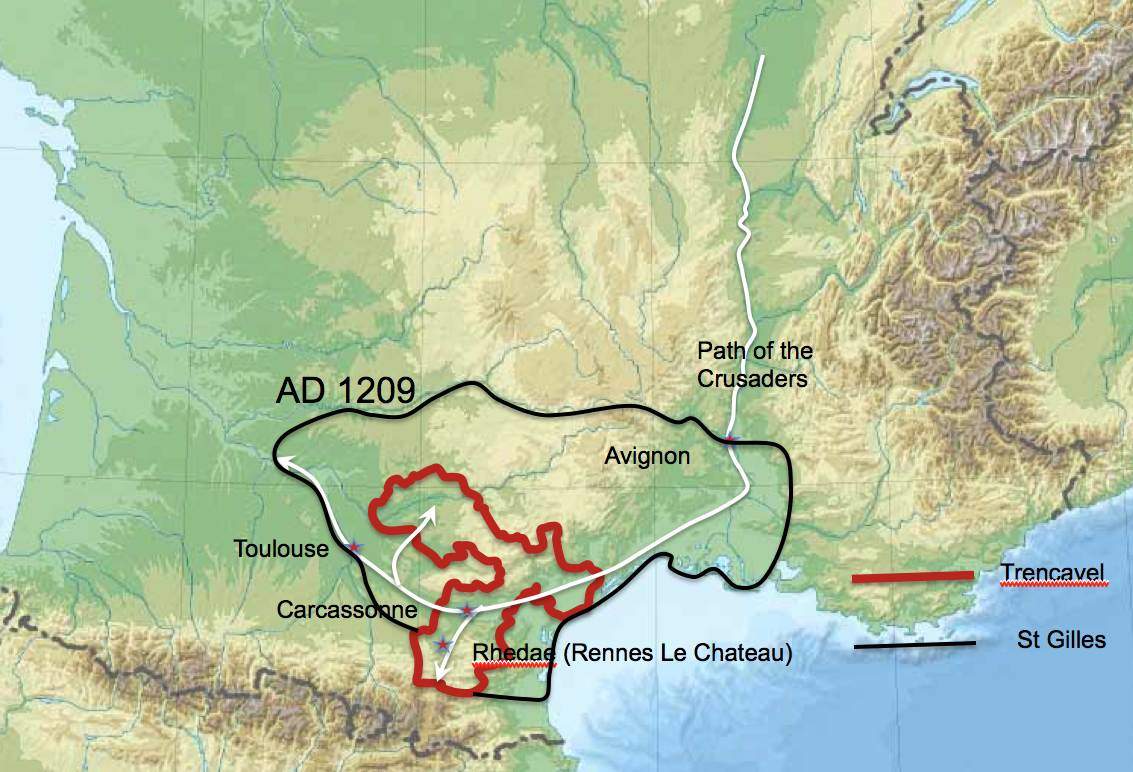
http://www.mmdtkw.org/CRUS1011-CatharsAlbigensianCrusade.jpg In France
The Rhineland massacres, also known as the persecutions of 1096 or Gzerot Tatenu (Hebrew: גזרות תתנ"ו Hebrew for "Edicts of 856"), were a series of mass murders of Jews perpetrated by mobs of German Christians of the People's Crusade in 1096.
Prominent leaders of crusaders involved in the massacres included Peter the Hermit and especially Count Emicho. Part of this persecution was the destruction of Jewish communities in Speyer, Worms and Mainz. These were new persecutions of the Jews in which peasant crusaders from France and Germany attacked Jewish communities. It should be noted that the Pope and local Catholic prelates condemned the actions of the Crusaders, but there were no apparent sanctions or punishments. (Of the estimated 40,000 initial participants of the People's Crusade, all but about 3,000 were killed or enslaved.)
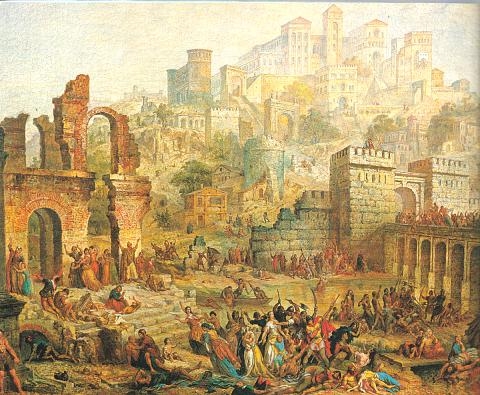
http://www.mmdtkw.org/CRUS1009-MassacreJewsMetz.jpgImage: Massacre of the Jews of Metz during the First Crusade by Auguste Migette (painted in 1850, now in the Metz Museum of Fine Arts) (Metz, Moselle prefecture, is in northeast France.)
Later incidents of the same pattern of Crusader actions occurred especially in Germany, France, and Spain.
What did the Crusades accomplish?
The simple answer is that they accomplished nothing.
But that's too simple.
If nothing else, the Crusades might have revitalized northwestern European contact with and interest in the land, peoples, and cultures of the "old" east (now called the Middle East) and then opened the door to "the Far East".
(Archeology has shown that there were trade patterns linking east and west as far back as the stone age, but the contact appears to have been through intermediaries, and interest appears to have been in "their stuff" rather than in "them" and in their territory.)
During and after the crusades, there were extensive exchanges in arts, architecture, literature, languages, philosophy, and other appurtenances of culture. From the western viewpoint, most of the exchange was inward, flowing from the east (and through North Africa and Islamic Spain). The Islamic Middle East (+Spain) had been fertile ground for earlier litteratures and philosophies (e.g., from the Fertile Crescent, from further east, and from the ancient Greek world.) Many things lost with the fall of Rome were recovered from Cairo, Baghdad, and Jerusalem. And when the Turks threatened and finally took Constantinople, Byzantine scholars fled to Rome taking with then their knowledge and collections. (A late prominent example was Basilios Bessarion, whose personal library became and is the core of the Biblioteca Marciana in Venice.)
If they didn't go for the land or to accrue wealth, what motivated the crusaders to pack up and go?
The simple and the complicated answer here may be pretty much the same: religious belief.
http://www.mmdtkw.org/CRUS1012-Motivation.jpg
http://www.mmdtkw.org/CRUS1014-NonNobis.jpg
Serving time in Purgatory
http://www.mmdtkw.org/CRUS1013TimeServed.jpg
The crusaders -- all good Catholics -- were real believers ("true believers") in the idea that everyone who had ever sinned (i.e., everybody) would be punished for a period of time in "purgatory" (i.e., the place of purging) even if they had been forgiven in "confession", the "sacrament of penance". They further believed that they could lessen the period of this punishment by "indulgences", which they could accumulate by good works that were defined and specified by the Catholic Church. A "plenary" indulgence would wipe the slate clean and eliminate the need to spend any time in purgatory. You could get one of these plenary indulgences by "taking the cross" and going on the crusade.
In some cases you could pay someone else to go Crusading in your place, or you could pay the costs of one or more crusaders, or just pay money to the organizers -- at various times, apparently depending on the fiduciary needs of the church, money rather than actual crusading could get you a plenary indulgence. You also might get a plenary indulgence in other ways, e.g., by simply visiting "pilgrimage" sites and especially sites in Jerusalem.
The actual sale of indulgences became scandalous, and Martin Luther's disgust with the practice was a major vector in his move toward reformation of the Catholic Church. Luther published his 95 Theses on indulgences in Wittenberg in 1597. (C.f., https://en.wikipedia.org/wiki/Indulgence,
https://en.wikipedia.org/wiki/Martin_Luther,
and https://en.wikipedia.org/wiki/Johann_Tetzel).
http://www.mmdtkw.org/CRUS1013TimeServed.jpg
In the 16th century, the Church dealt a serious blow to the sale of Indulgences by saying it was possible to gain a plenary indulgence merely by saying a few prayers in any of Rome's pilgrimage churches. This knocked the bottom out of the indulgence sale market.
The "cost" of a plenary indulgence today has been further reduced to saying the "Creed" (Nicene or Apostles' ok) and one "Hail Mary" in any Catholic church for the intention of the Pope (timely "Reconciliation" -- formerly known as "Confession" -- and Communion also required).
Oh, and for this to work you have to be a Catholic.
